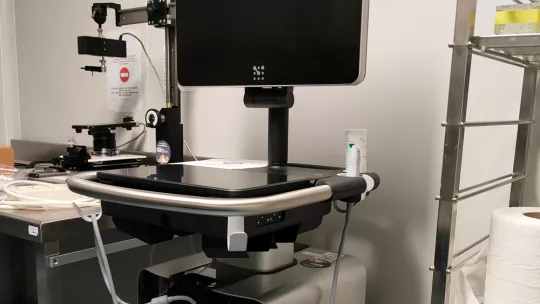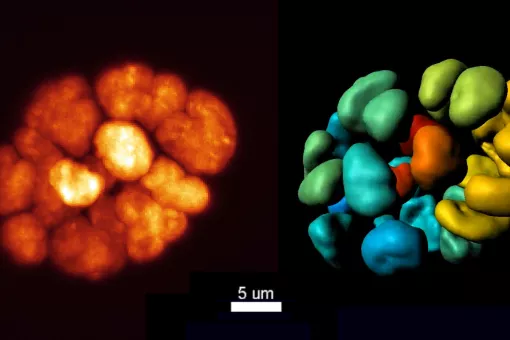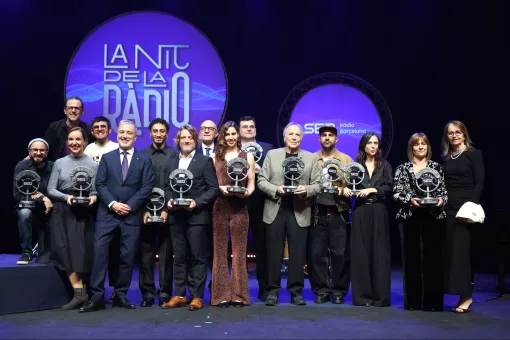Images
Key for biomedical research, this new piece of unique and exclusive technology allows non-invasive visualisation of organ physiology and alterations.
More than 6,300 people have participated in the #MetastasisChallenge, which aims to raise €5 million to support research into metastasis—the main cause of cancer deaths.
The Institute for Research in Biomedicine (IRB Barcelona) has a new high-resolution ultrasound apparatus to advance in biomedical research.
The Fero Foundation's collaboration within the framework of IRB Barcelona’s #MetastasisChallenge is part of its commitment to transfer basic research results to the clinic. The donation made by the FERO Foundation, together with resources from the ERDF*, has allowed the purchase of this ultrasound equipment.
Piru Cantarell, CEO of the FERO Foundation, says, "We work to promote translational cancer research. We want to contribute to the fight against cancer by helping the results generated by basic research to reach the clinic, and IRB Barcelona is a leading centre in this type of investigation. That is why we are very pleased to be able to support the Metastasis Challenge through a donation, which has allowed the purchase of cutting-edge technology that will boost the work conducted by the researchers."
Operating at high frequency (30-80 MHz), the ultrasound equipment allows in vivo real-time and non-invasive acquisition of anatomical, functional, physiological and molecular data with a resolution of up to 30 thousandths of a millimeter, and it is indispensable for research involving small rodents.
It is a unique and exclusive technology with which, for example, researchers will be able to monitor, in a non-invasive manner, the size and progression of tumours, the evolution of angiogenesis processes and the response to therapies currently under study, among others.
"The use of this type of medical imaging is widespread in cancer and metastasis research—fields in which IRB Barcelona researchers are internationally recognised experts. The acquisition of this equipment is a great opportunity to push the excellence of our scientific production forward," says Francesc Posas, director of IRB Barcelona.
In conclusion, this technology is an essential tool for biomedical research, in particular for the characterisation of animal models in pre-clinical studies. As an added benefit, the equipment will allow a reduction in the number of experimental animals needed.
Collaboration in the #MetastasisChallenge
IRB Barcelona is a pioneering centre in cancer and metastasis research, and two years ago it launched the #MetastasisChallenge campaign, a movement that seeks to engage society and secure the commitment of individuals, companies and institutions to the development of scientific research.
The campaign has already mobilised more than 6,400 people and intends to raise €5 million over 4 years to support research into metastasis—the leading cause of cancer deaths.
*European Regional Development Funds: Support for infrastructure and technical scientific equipment of the State Subprogramme on Scientific and Technical Infrastructure and Equipment (2019 Call)
About IRB Barcelona
The Institute for Research in Biomedicine (IRB Barcelona) pursues a society free of disease. To this end, it conducts multidisciplinary research of excellence to cure cancer and other diseases linked to ageing. It establishes technology transfer agreements with the pharmaceutical industry and major hospitals to bring research results closer to society, and organises a range of science outreach activities to engage the public in an open dialogue. IRB Barcelona is an international centre that hosts 400 researchers and more than 30 nationalities. Recognised as a Severo Ochoa Centre of Excellence since 2011, IRB Barcelona is a CERCA centre and member of the Barcelona Institute of Science and Technology (BIST).






